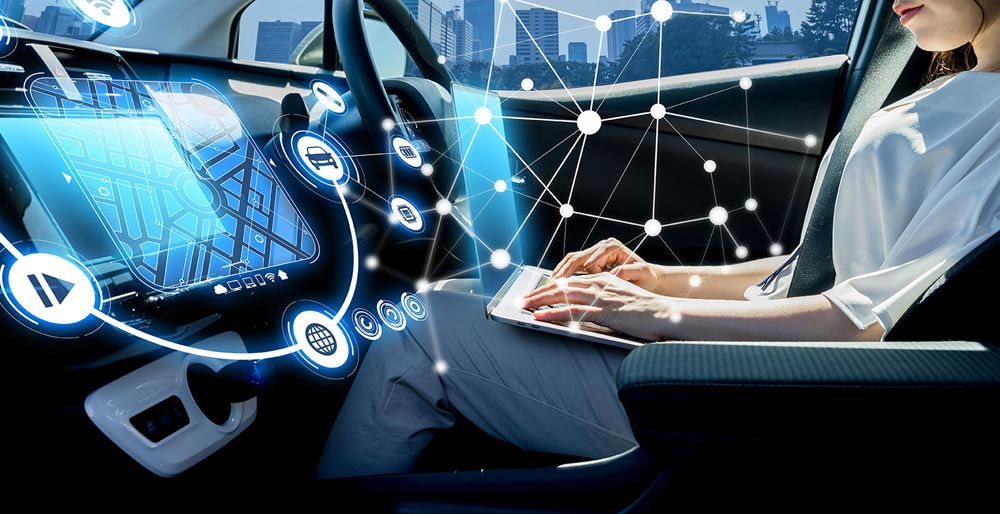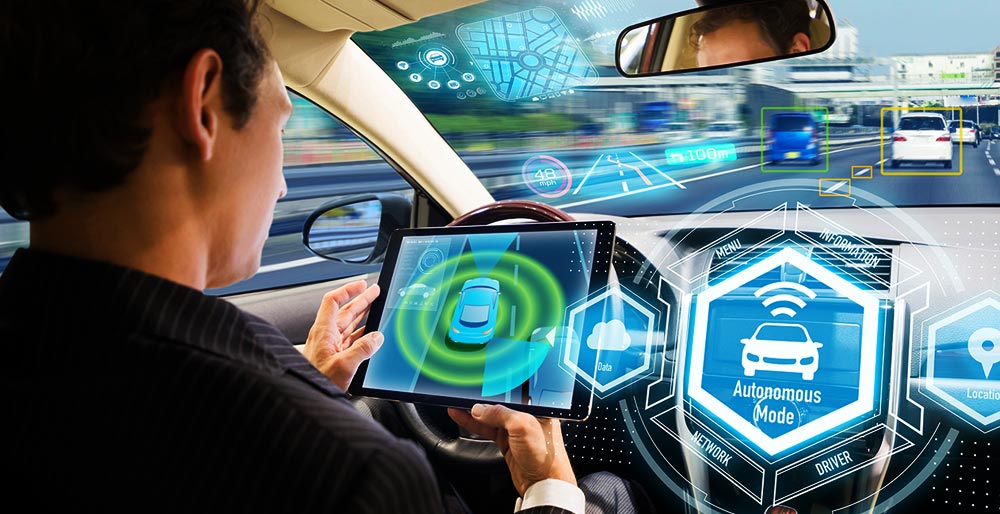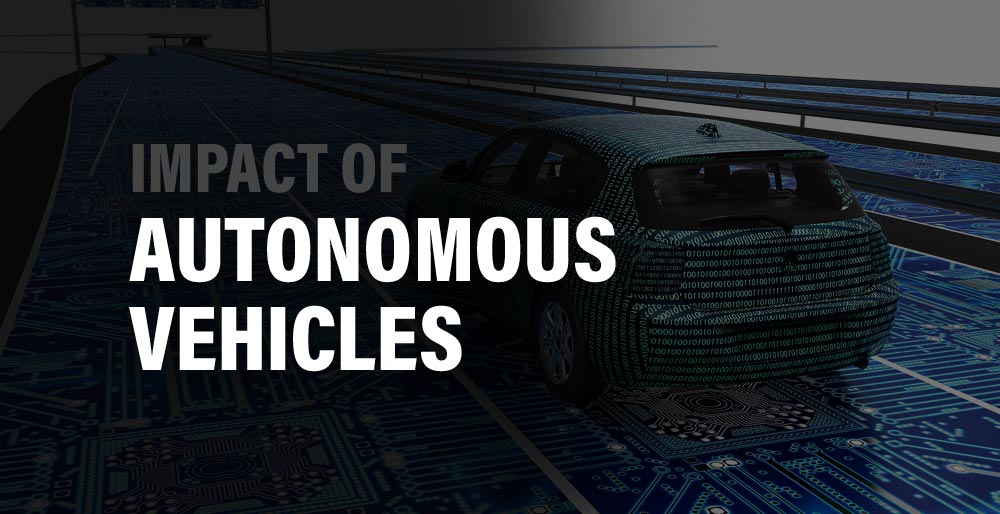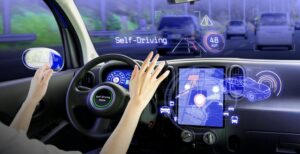The Impact of autonomous vehicles, or self-driving cars, is primed to redefine transportation as we comprehend it today. The impact of Autonomous Vehicles on transportation and society as a whole is nothing short of extraordinary. This article delves into the transformative potential of autonomous vehicles, highlighting the numerous ways they are reshaping the future of mobility. AI-equipped vehicles can revolutionize transportation, city planning, economics, and personal lifestyles.
The impact of autonomous vehicles goes beyond the realms of transportation. Autonomous vehicle technology harbors immense economic potential, capable of birthing new industries and jobs. In our discussion, we’ll explore how these vehicles significantly transform society, addressing both their potential benefits and problems related to their widespread use.
The Advancement of Autonomous Vehicles
Self-driving cars have improved a lot since their first versions in the early 2000s. Now, big car and tech firms are putting a lot of money into creating these systems, hoping to sell them soon. Waymo, a project from Google, has already made a lot of headway in making and improving this technology.

Benefits of Autonomous Vehicles
Enhanced Safety
Autonomous vehicles boast a crucial advantage of enhancing road security. Human error often causes accidents. Self-driving cars, however, can reduce these. They sense their surroundings, identify pedestrians and vehicles, and swiftly respond to live data. Research suggests autonomous vehicles and advanced driver aids could reduce vehicular deaths by up to 90%, potentially saving thousands of lives each year.
Increased Efficiency and Reduced Congestion
Self-driving vehicles can enhance the efficiency of traffic and lessen road blockages. Their advanced feature of interconnected communication and decision-making can curtail needless deceleration and speeding up, thus resulting in fluid traffic movement. Such streamlined efficiency not only cuts down journey durations but also lowers fuel use and pollutant release, fostering a more eco-friendly transport network.
Improved Accessibility and Mobility
Self-driving vehicles can significantly improve reachability and transportation, especially for people who can’t drive or don’t have a car. Older people, those with impairments, and individuals who can’t afford a car can take advantage of the comfort and autonomy offered by these self-navigating vehicles. Promising reliable and safe travel, these vehicles enable people to seamlessly reach work, medical centers, and social events.
Explore the Future of Transportation with the latest advancements in electric vehicles.
Challenges and Considerations
While the potential benefits of autonomous vehicles are promising, there are several challenges and considerations that need to be addressed before their widespread adoption.
Legal and Regulatory Framework
The legal and regulatory framework surrounding autonomous vehicles is still in its early stages. Ensure careful handling of responsibility during accidents, data privacy, and cyber security for the safe and accountable use of autonomous vehicles. Regulatory bodies and industry stakeholders must jointly create comprehensive, consistent rules for the operation and rollout of autonomous vehicles.
Ethical Considerations
Autonomous vehicles rely on complex algorithms and AI systems to make decisions in real-time situations. It is vital that these mechanisms are designed to undertake moral judgements, like assigning priority to the wellbeing of both passengers and pedestrians. We must carefully review key ethical dilemmas, like the “trolley problem” where a self-driving car must decide between protecting its passengers or others. This will guarantee that self-driving cars comply with both societal norms and ethical guidelines.
Economic Disruption and Job Loss
The widespread adoption of autonomous vehicles is likely to disrupt various industries and result in job displacement. Professions like cab operators and lorry operators might see considerable changes as self-driving vehicles start dominating the transport sector. However, it’s significant to recognize that these self-driving vehicles could potentially pave the way for fresh employment opportunities in areas such as AI development, vehicular maintenance, and remote monitoring. Thus, it’s crucial for authorities and schools to proactively plan for this economic shift, offering educational upgrades and aid to workers impacted by this tech advancement.
Infrastructure and Integration
The integration of autonomous vehicles into established transportation systems necessitates significant upgrades to our infrastructure. The integration of recognition and networking capabilities into our highways and transport pathways is vital to optimize the efficacy of autonomous vehicles. Additionally, it’s very important to include these self-directed units in various transportation options like public buses and bike lanes. This will help promote an inclusive and eco-friendly movement plan.

The Future of Autonomous Vehicles
The advancement of self-driving vehicle technology calls for a societal change to leverage the benefits offered by this progress. The traditional concept of car ownership is shifting towards communal and on-demand transportation, allowing access to autonomous vehicles as needed, rather than through personal ownership. This significant change can potentially result in decreased traffic jams, enhanced air cleanliness, and a better utilization of city areas.
To minimize risks in adopting self-driving vehicles, it’s essential for government, industry, and the public to collaboratively develop stringent rules and address ethical issues, ensuring a seamless transition to this autonomous future.
Conclusion
The impact of autonomous vehicles is set to shape a new era in transportation and society. With enhanced safety, increased efficiency, and greater accessibility, self-driving cars hold the promise of a more connected and sustainable future. Embracing this technology responsibly will be key to unlocking its full potential and reaping the benefits it has to offer. Self-driving cars carry the transformative power to fundamentally alter transportation and bring about deep-seated societal changes.
The impact of autonomous vehicles extends to the economy and job market. As the autonomous vehicle industry flourishes, it will create numerous job opportunities. Self-driving vehicles offer safety, efficiency, and economic gains, but they necessitate careful attention to legislative, ethical, and economic concerns, as well as seamless integration with current infrastructure for smooth uptake. With strategic planning and collaboration, they could herald a greener, more efficient, and inclusive transportation future.









